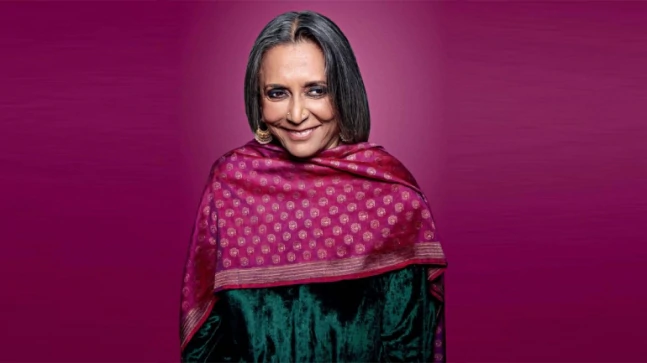
[ad_1]
Deepa Mehta’s latest film Funny Boy is a coming-of-age story of a minority Tamil Christian boy growing up in a Buddhist, Sinhalese-majority Sri Lanka. Set in the 1970s-80s, it explores a Tamil-Sinhalese gay love story at the onset of the 26-year civil war that left about one million Tamils as refugees. A sumptuous period film that is deeply felt, moving and funny, it is Mehta’s finest film yet. The book is an adaptation of Shyam Selvadurai’s 1994 best-selling book, Funny Boy.

Even before its release, Funny Boy has been garnering laurels: it has been selected as Canada’s entry for the Academy Awards for Best International Feature Film (Amritsar-born Mehta is based in Toronto). Additionally, it is being released by the high profile Ava DuVernay’s Array, a distribution collective for films by people of colour and women. Following Funny Boy’s theatrical release in Canada on November 20, Netflix will release the film in the UK and US on December 3 and 10. The film’s Indian premiere will be in New Delhi on December 10 at the Engendered I-View-World 2020 Human Rights Film Festival (its India distribution dates were yet to be finalised at the time of writing).
“All my films are quite political,” Mehta told Variety. “This was a good fit for me, because it’s not just a coming-of-age film. It also deals with an oppression of minorities. Who is the victim? Who is the perpetrator? Where is humanity?… It’s too easy to make somebody bad, or somebody good. Life is far more complicated than that.” In the pristine-beach poster-like Sri Lanka of 1974, we are introduced to the upper crust Tamil family of Chelva (Chelvaratnam), who runs a resort. He is embarrassed by his ‘funny boy’ son Arjie (Arjun, played by Sri Lankan actor Brandon Ingram), who prefers playing ‘bride-bride’ with the girls, than cricket with the boys. Arjie’s mother Nalini defends him, but his biggest ally is his America-returned Radha Aunty, who encourages him to be himself. As a teenager, Arjie falls in love with a Sinhalese boy, Shehan Soyza (Rehan Mudannayake). But as the Sinhalese-Tamil conflict explodes into a civil war, Arjie’s family is devastated by it.
The direction is absolutely assured, with magnificent craftsmanship. Even as Mehta spins a love story, the film addresses ethnic, religious and class issues. There are masterly scenes in which she plays with time, including a scene in which Radha is forcibly married to a Canadian-Sri Lankan: the kid Arjie weeps in the church pews, but in the next scene, an older, guilty Arjie is unable to meet the bride’s eyes.
Ingram plays Arjie with an easy confidence in his debut feature. Accomplished British-Sri Lankan actress Nimmi Harasgama (also seen in August Sun and the short I Too Have a Name) stands out as the bold, married Nalini, who falls for Jegan, a Tamil Tiger activist. Seema Biswas, as the grandmother, is a delight. The rest of the cast, including Ali Kazmi, Agam Darshi, Rehan Mudannayake and Shivantha Wijesinha, are good too. The screenplay, by Selvadurai and Mehta, is intimate, yet universal, and peppered with humour. Cinematographer Douglas Koch imbues the gorgeously-lit frames with nostalgia and empathy. The film is well edited by Teresa Font. Oscar-winning Howard Shore (Lord of the Rings) composes beautiful music. The film is produced by David Hamilton and Hussain Amarshi.
Mehta has directed about 24 films and series. It remains to be seen how Indian audiences receive the film: while empathetic to the plight of the minority Tamils in Sri Lanka, it is also empathetic to a gay teenager, so hopefully as audiences, we have grown up a bit since her ‘elements trilogy,’ Fire, Earth and Water. Fire (1996) was among the earliest Indian features to openly address a lesbian relationship; Earth (1998) was a love story set during the Partition; and Water (2005) was on the plight of a Hindu child widow in Varanasi. Her Midnight’s Children (2012), adapted from Salman Rushdie’s novel, was on the destiny of two children born at midnight, when India was born. Her Anatomy of Violence (2016) was based on the infamous Delhi gang-rape of 2012. She also directed two episodes of Leila, a Netflix Original series, on a mother’s search for her daughter, set in a dystopian future.
Mehta is no stranger to Sri Lanka. Hindu fundamentalists had burnt some of the theatres screening Fire in India; and after they also vandalised the sets of Water in Varanasi, she secretly shot the film in Sri Lanka instead. Water won an Oscar nomination. Later, she secretly shot Midnight’s Children in Sri Lanka, fearing trouble from Islamic fundamentalists. Life seems to have come full circle, after she returned to shoot in Sri Lanka again for Funny Boy. Such a long journey for Deepa Mehta, whose father was a film distributor and theatre owner in Amritsar. And such a fulfilling one.
[ad_2]
Source link